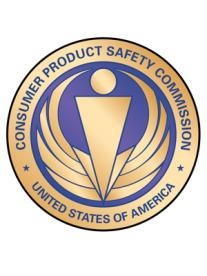The U.S. Consumer Product Safety Commission (CPSC) has approved its Operating Plan (Op Plan) for the 2022 Fiscal Year (FY 22) that begins October 1, 2021, according to a joint statement from its two Republican members, Dana Baiocco and Peter Feldman. The Op Plan is the central governing document for CPSC, outlining the projects and priorities the agency will focus on through a fiscal year. It identifies the objectives for every agency office, the rules and standards the agency intends to issue or advance, and the resources the agency is committing to its many activities.
As outlined in the joint statement, the approved FY 22 Op Plan:
-
Increases CPSC’s presence at the nation’s ports by adding 27 new inspectors;
-
Adds resources to the Field Operations team within CPSC’s Office of Compliance;
-
Reinstates the specialized Children’s Product Defect Team within Compliance;
-
Expands the agency’s laboratory facilities;
-
Directs CPSC staff to pursue mandatory rulemaking regarding “Support Pillows and Nursing Support Products”;
-
Increases the budget of the Office of Communications by nearly 25 percent; and
-
Works to address data security recommendations of the CPSC Inspector General (IG), including those the IG made in response to the massive unauthorized disclosure of sensitive company and consumer data the agency revealed in 2019.
However, the approval of the FY 22 Op Plan is not without controversy. As the joint statement notes, the Commission voted 2-1 to approve the plan. A separate statement by Acting Chairman Robert Adler, notes that the approved plan reflects “over 50 amendments [Baiocco and Feldman offered] with no advance notice” in what Adler describes as “Government by Ambush.” Later, CPSC’s Secretary released the Record of Commission Action (RCA) for the vote – the official document stating the outcome of the decision – stating that “[U]pon request for review by the Acting Chairman, the Acting General Counsel determined that the vote . . . is null and void because the Decision Making Procedures were not followed.” Adler subsequently issued a further statement, highlighting the RCA and raising both procedural and substantive objections.
As the basis of the Acting General Counsel’s position was not reflected in the RCA, and the Decision Making Procedures are a “For Official Use Only” internal document, there are two possible options. If the Acting General Counsel’s determination is based on procedural and not substantive concerns, a vote could presumably be re-taken in accordance with the Decision Making Procedures. If the basis of the determination is both substantive and procedural, CPSC would be left without an Op Plan until some consensus emerges.
As of this writing, it is not clear what legal effect the 2-1 vote to approve the plan has, if any, or whether CPSC actually has a plan for its 2022 Fiscal year. Assuming the vote stands (if, for example, Baiocco and Feldman vote to overrule the Acting General Counsel), the Baiocco and Feldman amendments address a variety of subjects. Many are institutional topics, such as a direction to the agency to adopt the Inspector General’s (IG’s) recommendations along with provisions to strictly limit CPSC’s ability to use paid spokespersons or influencers, to ban all CPSC staff from using TikTok on any CPSC-issued device, and to prohibit the agency from distributing any of its messaging through the app (presumably based on security concerns). Some amendments narrow, expand, or shift CPSC’s FY 22 safety priorities. Among these is a direction to the Office of Import Surveillance to place more emphasis on high-volume ports instead of the greater focus on de minimis (e.g., direct-to-consumer) imports that the staff draft Op Plan had proposed. Commissioners Baiacco and Feldman describe this alignment as “consistent with . . . Congressional mandates.”
Of note to manufacturers of e-cigarettes, the amended Op Plan directs staff “to increase enforcement activity of the Child Nicotine Poisoning Prevention Act [CNPPA] . . . including removal of noncompliant liquid nicotine containers from commerce.” Field agents have already prioritized CNPPA compliance, generally focused on removal and destruction of non-compliant inventory from retail and distribution outlets. To date, consumer-level recalls have not been conducted.
The internal disagreement over the Op Plan is another sign of an agency in flux. As Adler’s statement notes, three Democratic nominees await confirmation by the Senate. However, only two of those three – Alexander Hoehn-Saric, nominated for Chairman, and Richard Trumka, Jr. – have cleared the Commerce Committee. The Committee vote on the third nominee, current CPSC Executive Director Mary Boyle, was pulled from the agenda of the most recent hearing. As Trumka is nominated for the seat Adler currently holds, if he and Hoehn-Saric are confirmed but Boyle is not, CPSC would face a 2-2 party split, albeit with a confirmed chair for the first time in more than four years. Regardless, the business community wants and needs an effective, fair, and appropriately focused national product safety agency, so we will need to continue to monitor CPSC developments closely.




 i
i


